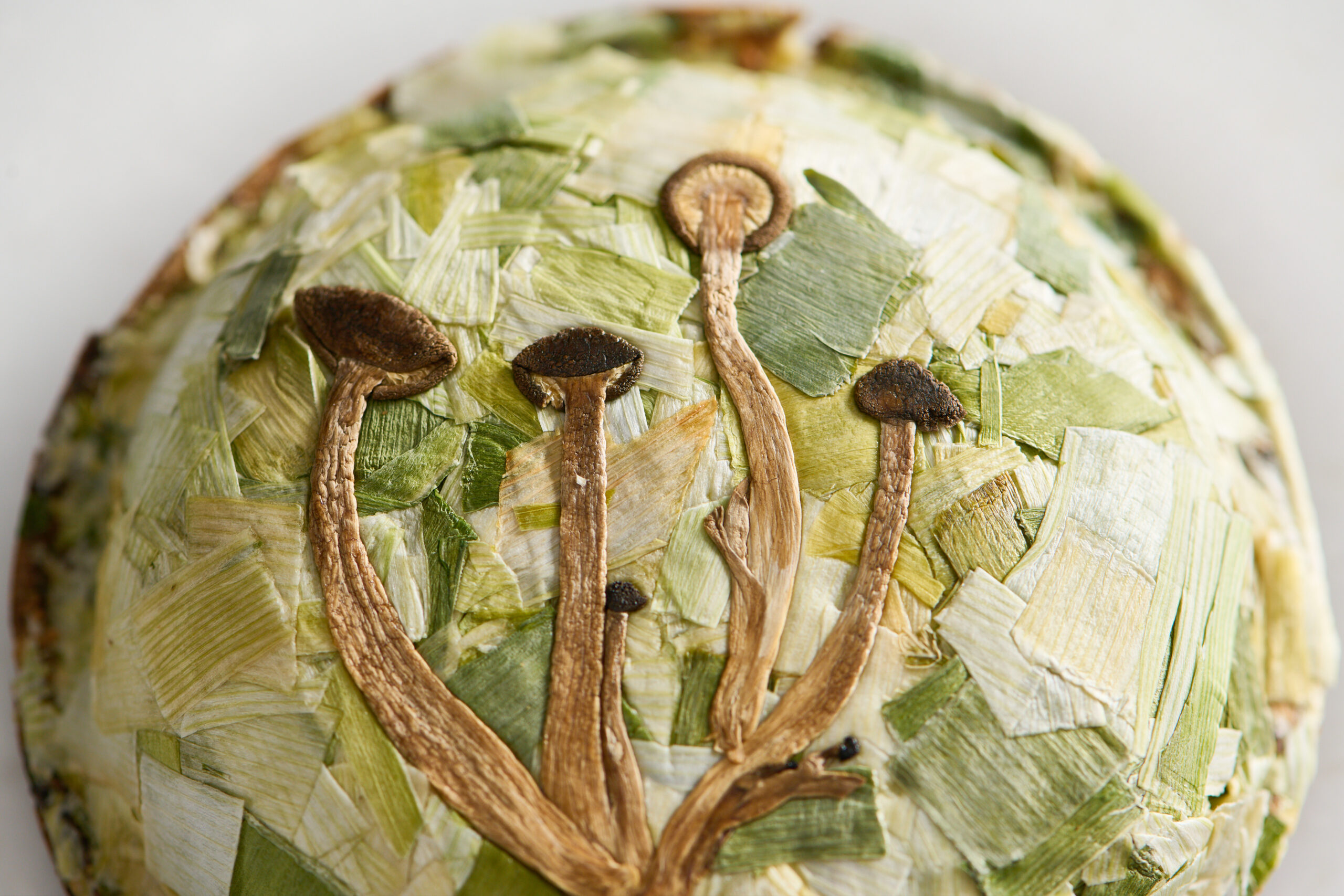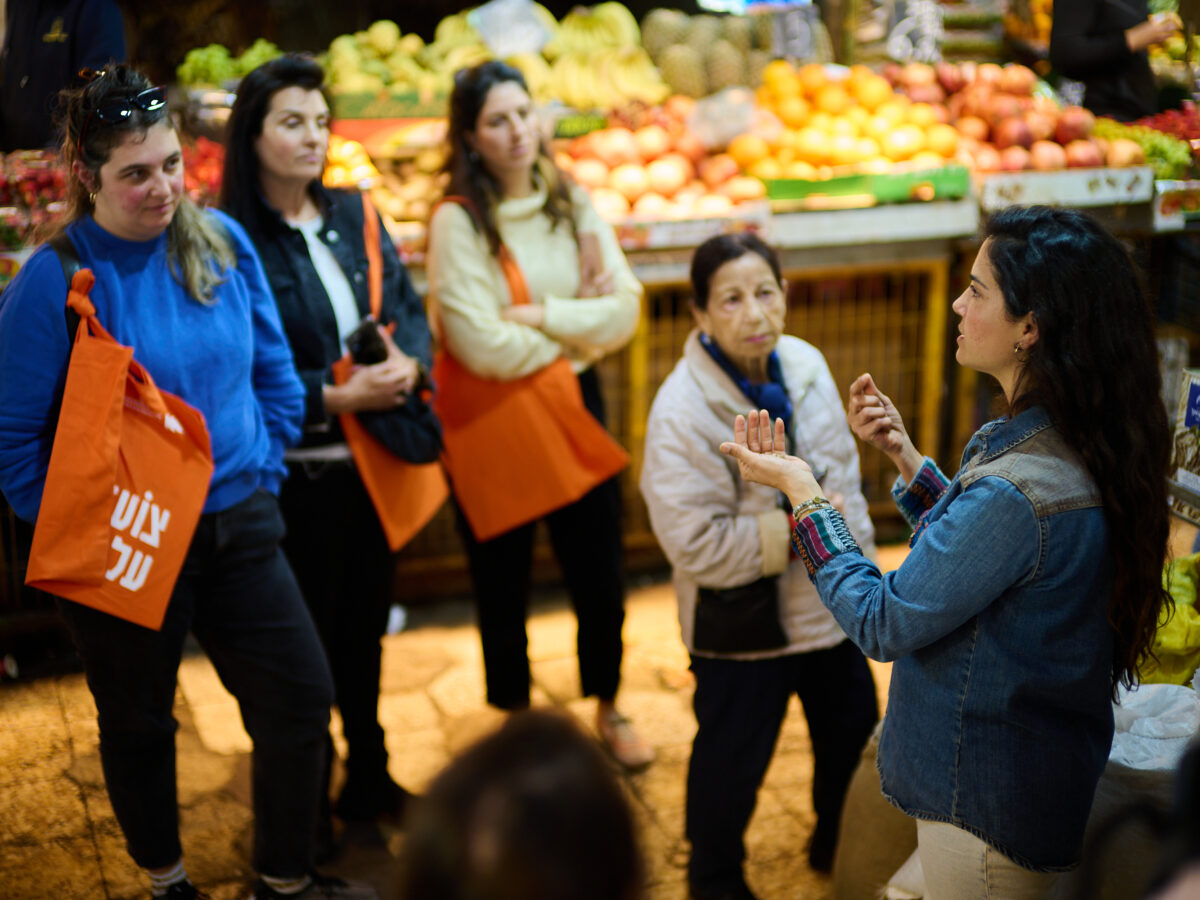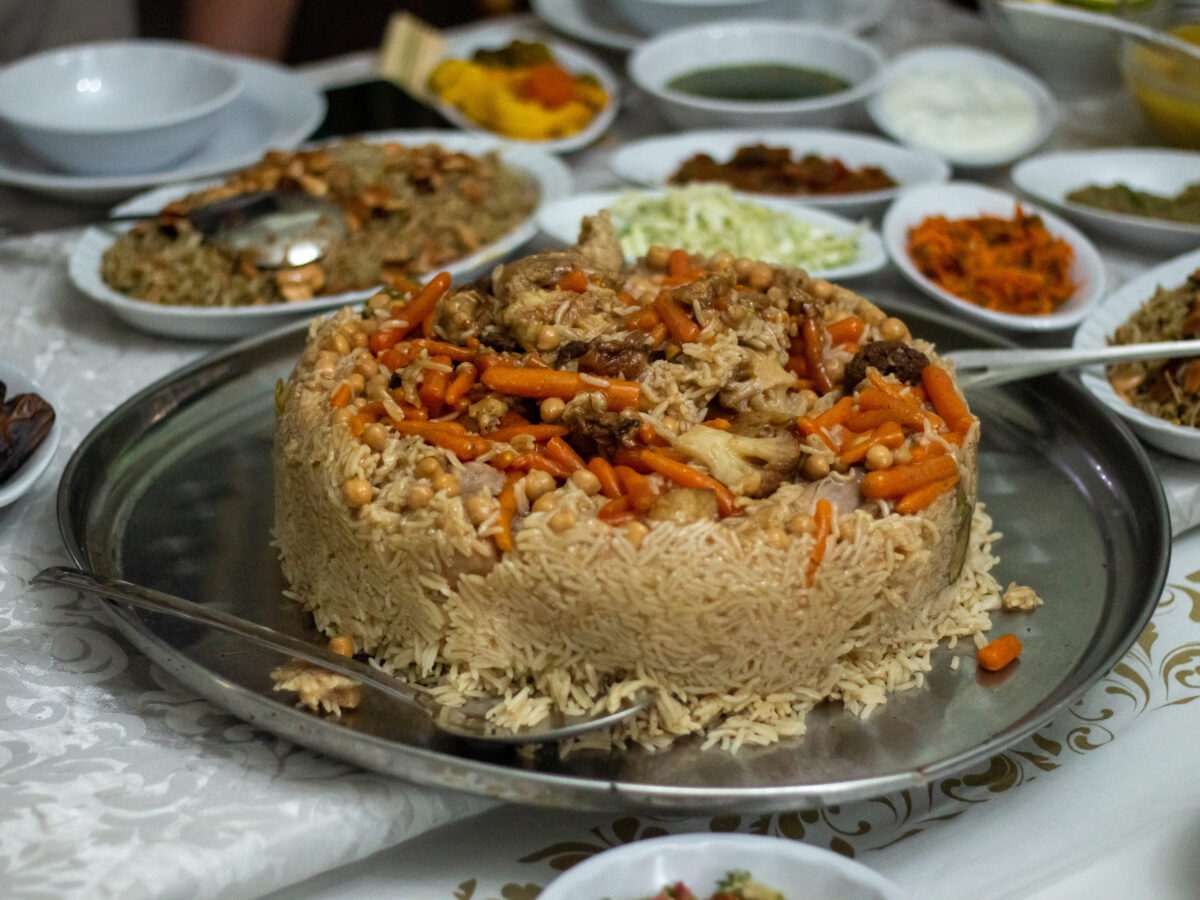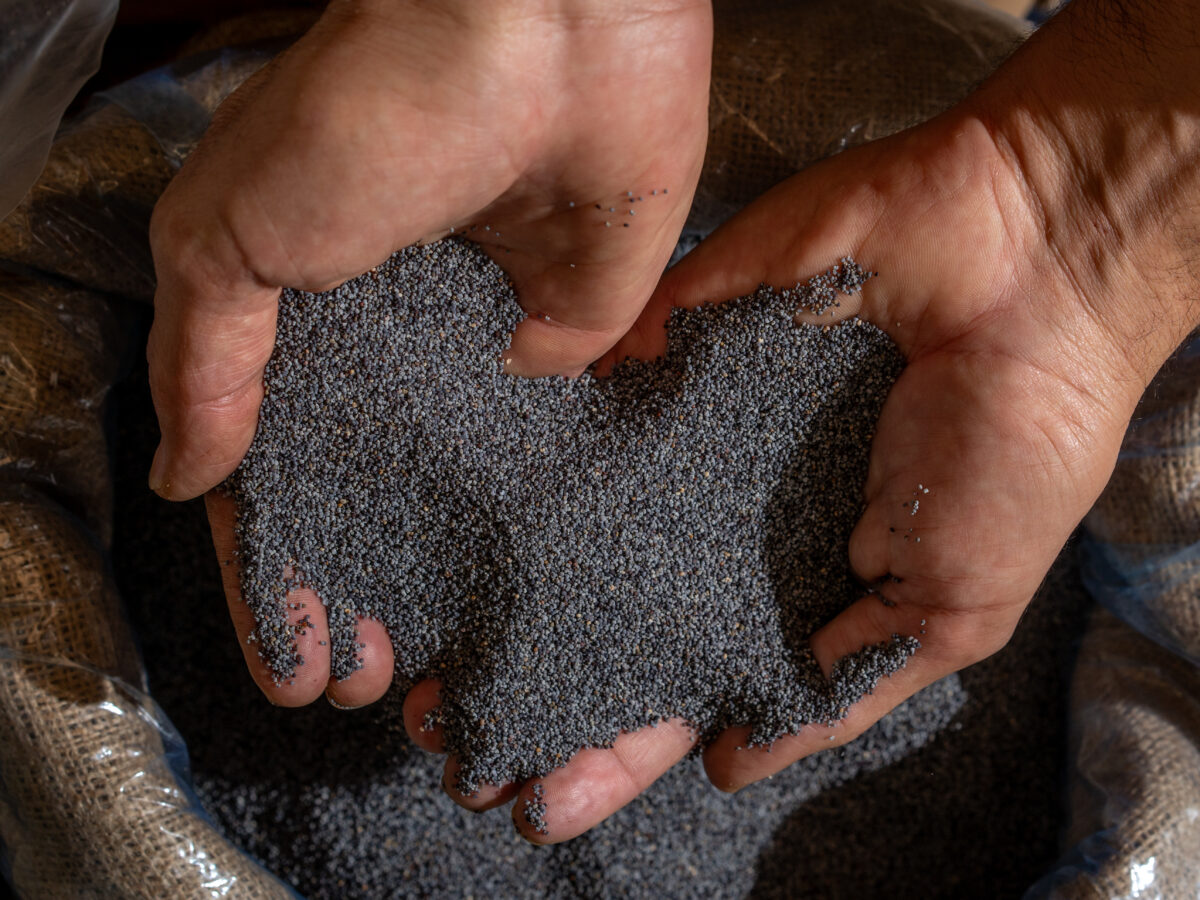Every year, 2.6 million tons of food are thrown away in Israel, according to the national food bank Leket Israel. That food is worth 21.3 billion shekels or nearly $6 billion.
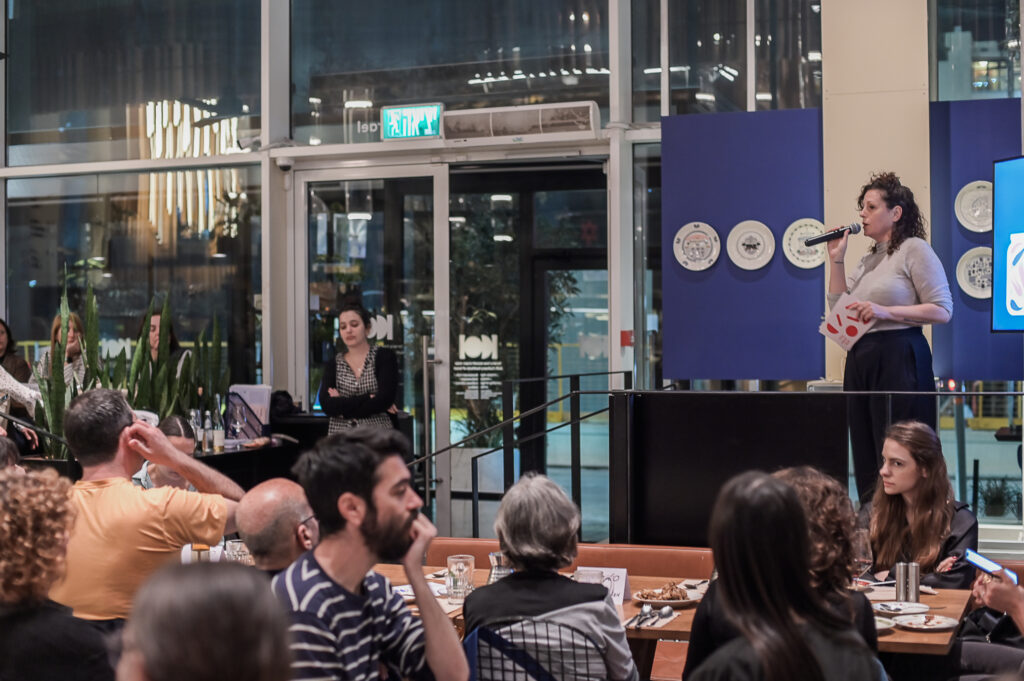
But the problem doesn’t only have economic consequences. When we throw away food, we also throw away all the environmental resources that were invested in its creation, Dr. Michal Bitterman, CEO of The Natural Step, explained as he kicked off our program on fighting food waste in March.
It’s a major problem, both economically and in terms of the environment — and one the public isn’t indifferent too. According to Bitterman, one of the most prominent trends for 2023 is “conscious enjoyment,” and it stems from trends that have already been established in the public discourse — sustainability and zero waste. The public wants to continue to enjoy food, at home and outside, but alongside transparency and the knowledge that the food is based on sustainable principles.
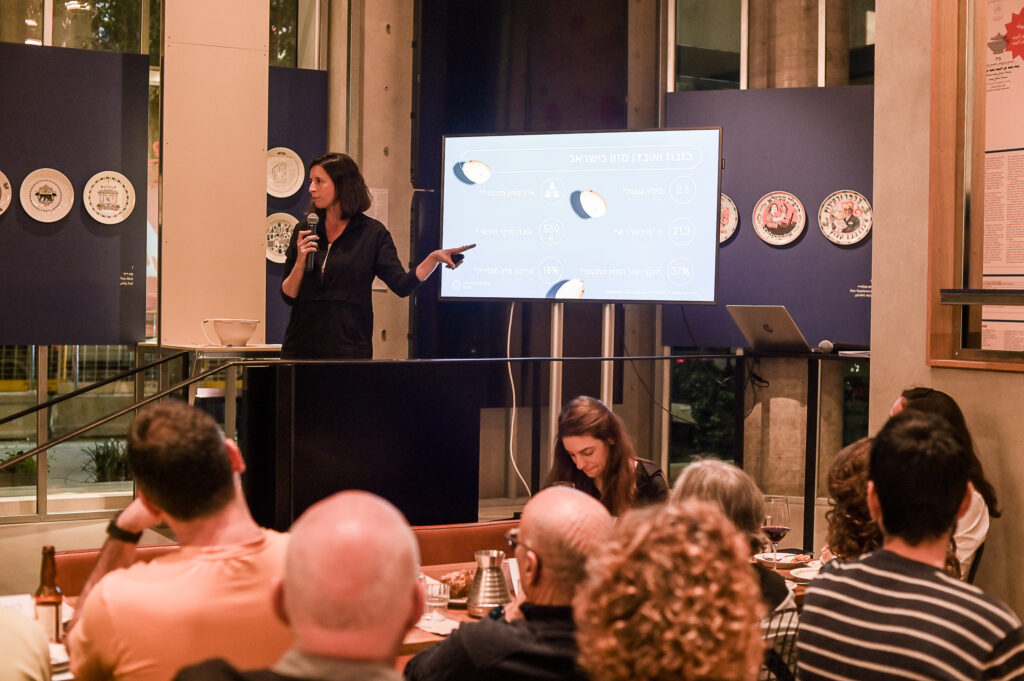
One of the ways to reduce food waste is through a circular economy, which often begins with what is known as precycling (reduction at the source). Anina – Culinary Art is a good example of that. The Israeli-based company is changing everything we thought we knew about packaged food. Co-CEO Anat Natan explained at the event that her team buys “ugly” vegetables directly from Aleh Aleh and transforms them into thin, dehydrated “leaves” that are compressed into nutritious, sustainable, and delicious capsules that can be reheated in a microwave.
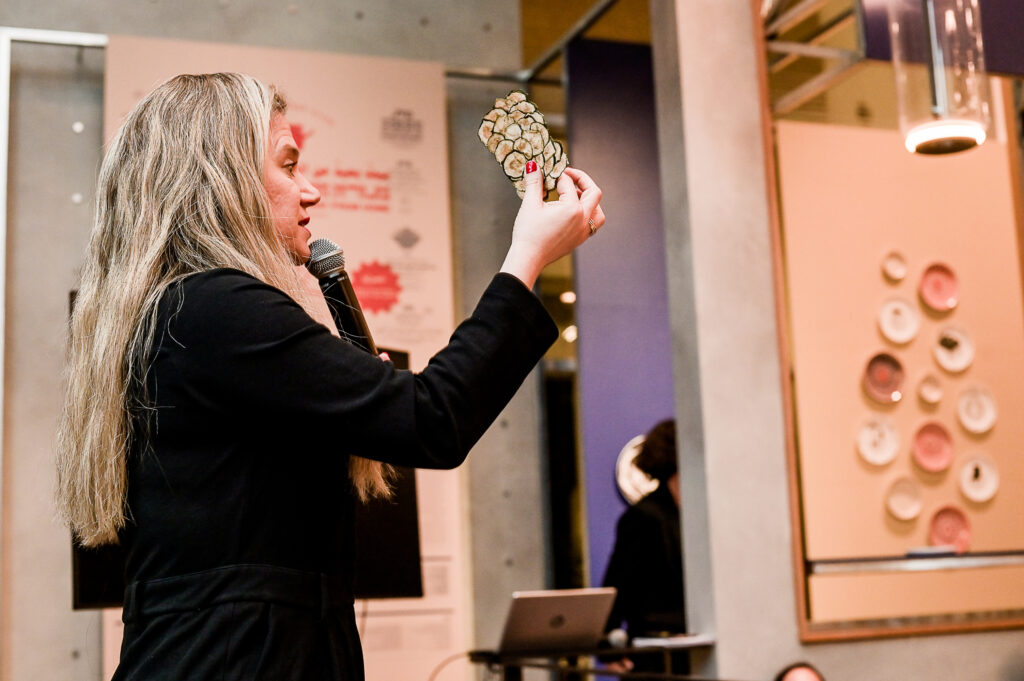
But, is it possible to create a restaurant menu that’s sustainable? Chef Shirel Berger who runs Opa — which was just named the “one to watch” by the Middle East and North Africa’s 50 Best Restaurants — concedes that no restaurant can be 100 percent sustainable. But, she’s certainly working towards that, most notably by keeping her menu vegan. Each of her dishes revolves around one vegetable or fruit, with her team using different techniques to show its many expressions. At the event, she pointed out that when she went to the prestigious Culinary Institute of America, there was no emphasis on sustainability. Instead, her motivation came from a lesson her mother taught her in the kitchen: to never throw away food.
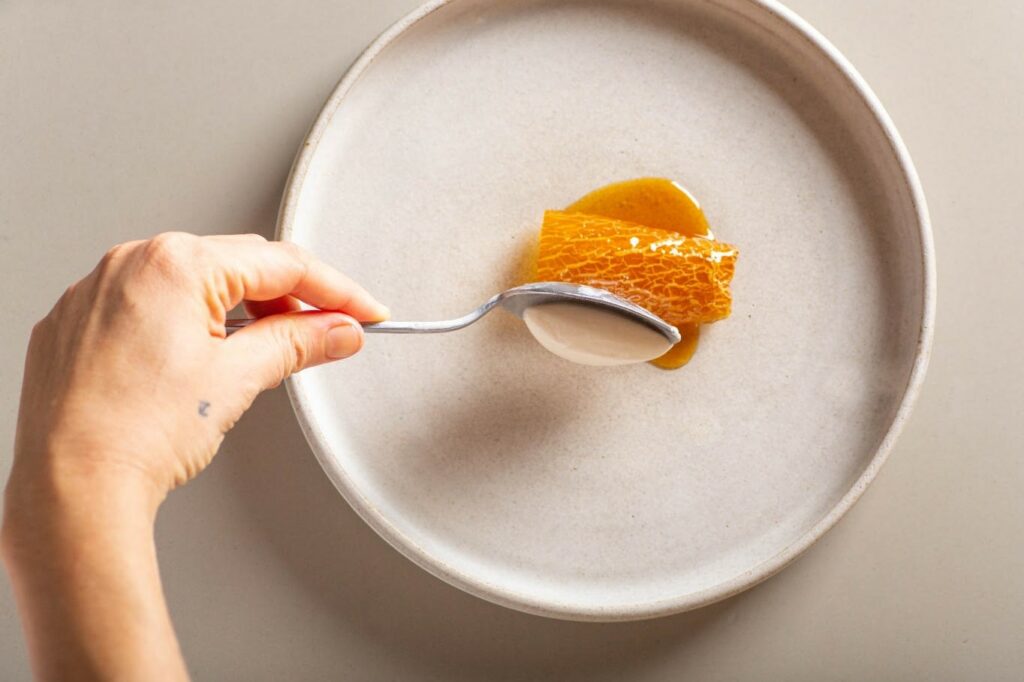
Pioneering members of the cocktail industry are also making strides in the fight against food waste. Sociologist and coffee researcher Noa Berger discussed her collaboration with the cocktail bar Stanley at the event. Together, they created a drink with waste from the coffee industry. The cascara fruit is used in the brew, the thin covering of the bean known as the silver skin is used to make a syrup, and espresso grounds infuse the cognac.
When talking about food waste, it is impossible to leave packaging out of the discussion — particularly three years after the start of the Coronavirus pandemic, when delivery and takeout orders soared. Ran Doron, who used to work at the delivery company Wolt, explained at the event that complaints surrounding disposable packaging were coming from both the customers and the restaurateurs. So, he left his job to start OPA, which tries to address that problem with reusable containers that can be returned to one of many collection points at restaurants and office buildings.
